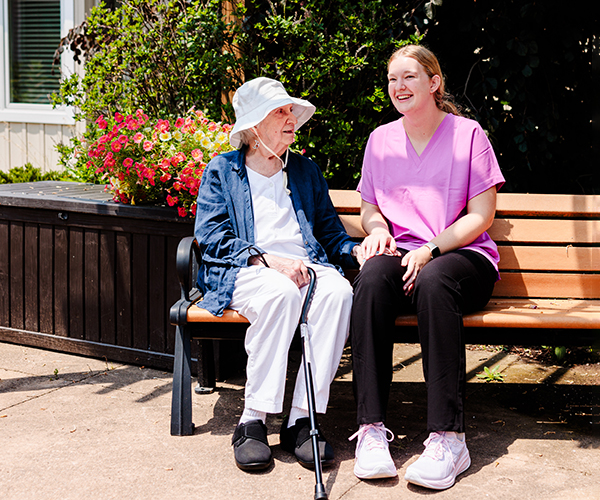Everyone knows stress is unhealthy, often triggering high blood pressure and other problems, but we’re still more likely to see the health benefits of a morning run over setting time aside to unplug from the rigors of our daily lives.
“Everyone knows, to some extent, that they should be taking care of their physical bodies,” says Kent State University assistant professor of psychology Joel Hughes, Ph.D. “But what are we doing to help manage our busy, stressful lives?”
Hughes is currently examining this mind-body connection with Akron’s Summa Health System by studying the effects of mindfulness-based stress reduction and progressive muscle relaxation on people with prehypertension (those at risk of one day developing full-blown hypertension because their blood-pressure readings are higher than normal). Called Stress Management in Lifestyle Enhancement, or SMiLE for short, the study of 84 participants ranging in age from 30 to 60 is being funded by a grant from the National Center for Complementary and Alternative Medicine. The results won’t be available until next year, but the approach is already showing promise.
“Progressive muscle relaxation is a technique that gets people really relaxed,” Hughes says. “People are taught to sequentially tense their muscles and then relax them, which shows them what it feels like to be tensed and stressed versus being calm and relaxed. When they realize they can control their bodily tension, they also learn they can choose to relax themselves.”
The other technique, mindfulness-based stress reduction, teaches people to pay attention to the present moment without judging it.
“Being mindful helps people not overreact,” Hughes explains. “It’s actually a meditation people can do when they’re driving, walking, working or cooking or whatever. And it’s been shown to help prevent people from relapsing into depression as well as manage chronic pain.”
How They Did It
It could be a fluke. It may also be solid evidence that the SMiLE approach yields results in fighting prehypertension. Jim Wurster of Cuyahoga Falls went through the eight-week program and saw his systolic blood pressure drop from 131 to 125.
“It’s encouraging and even tantalizing that people can help themselves with these exercises,” Wurster says. “My nature is that I’m not a very calm and serene person. Before I started this program, I used to do everything just to get through it. I’d gulp all my food down as fast as I could. I’d speed walk to get places and not think about walking. But now I take time to quiet my mind and pay attention to what I’m doing as I’m doing it.”
A forensic scientist and retired director of the Ohio Bureau of Criminal Identification and forensic scientist, Wurster was impressed with the SMiLE study’s scientific rigors the SMiLE study employs, including the use of a control group to help validate findings.
Wurster tries to set aside 30 to 45 minutes every day for meditation. He’s also eating healthier.
“I’d started reducing my salt intake several months ago,” he says, “and eliminated fast foods and high fat. But this study has added another component.”
Wurster uses meditation CDs, does yoga and makes an effort to live in the moment without judging what’s happening.
“Now I concentrate on what’s in front of me, and I don’t worry about tomorrow,” he says. “I’m mindful among other people and with myself.”
How To: Unplug at Work
Nearly anyone can benefit from doing simple relaxation exercises. Here’s an easy mini - relaxation practice from Kent State’s Joel Hughes that you can incorporate into your daily life:
1. Stop your activity.
2. Slowly say the word “relax.”
3. Allow yourself to relax and focus on the sensations flowing down through your body.
4. Concentrate on the calmness first spreading down your face, then downward through your shoulders, arms, hands, stomach, legs and feet. 5. After 30 seconds, return to your activity.



